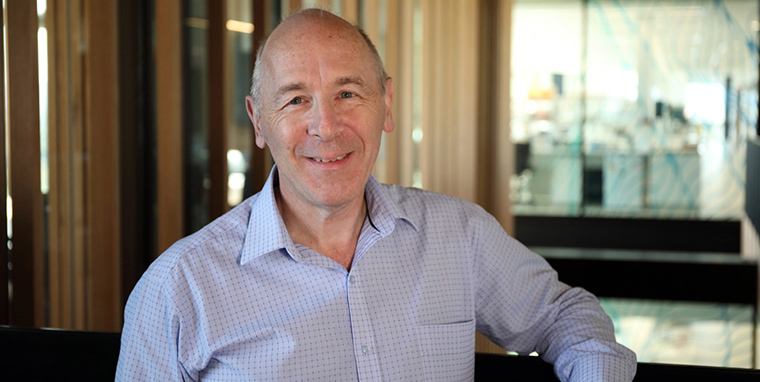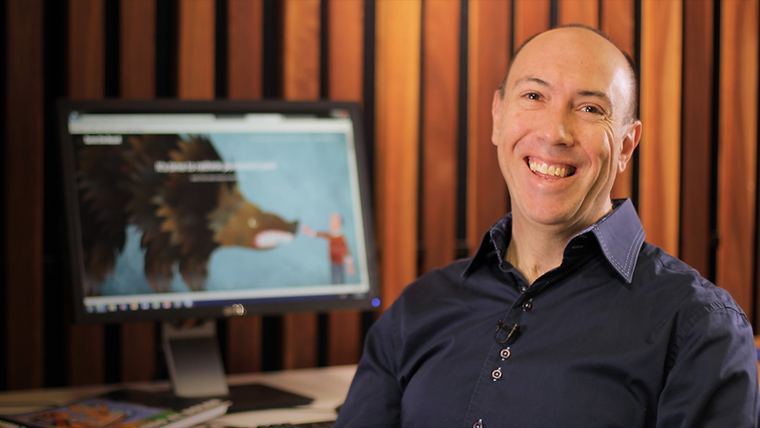News
Project aims to tackle pain of cancer survivors
A University of South Australia pain scientist is teaming up with a cancer expert to develop an online tool to help cancer survivors with their persistent pain.
 Professor Moseley said many cancer survivors have ongoing pain due to the heavy toll of treatments.
Professor Moseley said many cancer survivors have ongoing pain due to the heavy toll of treatments.
‘If you have survived, then you should buy a lottery ticket or something because you have beaten cancer.’
That is what a lot of cancer survivors get told, says Professor Ian Olver, Director of the University of South Australia’s Cancer Research Institute.
However, he told newsGP that cancer survivors are often left with a number of ongoing symptoms, especially pain.
‘They are left with physical and psychological symptoms that often interfere with the quality of life,’ Professor Olver said.
‘Sometimes the pain can be residual from the original cancer … sometimes it can even be residual of the discomfort of the effects of the therapy.’
Now Professor Olver is teaming with University of South Australia pain scientist Professor Lorimer Moseley and an international research team to develop an online self-management tool that aims to help the estimated 40% of cancer survivors whose pain has been deemed an unfortunate side effect.
‘When you consider that in Australia alone more than one million people have survived cancer, the impact of pain on this community is staggering,’ Professor Olver said.
‘Professor Moseley is internationally renowned for his work in pain science, so together I believe we can make a real difference for these people.’
 Professor Ian Olver said cancer survivors are often left with a lot of symptoms, including pain.
Professor Ian Olver said cancer survivors are often left with a lot of symptoms, including pain.
The team has started a crowdfunding campaign to raise at least $30,000 to complete phase one of the project, which will include developing a prototype for an online multimedia tool that addresses issues that are unique to cancer survivors.
A University of South Australia spokeswoman said if the first phase crowdfunding goal is met, the university will raise the total by an additional 20%.
Further investment will then be sought to take the project into its second phase, which will be testing and fine-tuning the online tool before making it freely available to all cancer survivors.
About $6000 has been raised so far.
Professor Moseley told newsGP many people who survive cancer feel bad about admitting pain because they should be grateful that they have survived.
He wants to develop a resource that is tailored to cancer survivors and will teach people from all walks of life the basic aspects of pain in order for them to understand the best things to do about it.
‘That’s the real challenge that we have … the best thing to do about pain is seldom to focus on the body part that hurts in isolation,’ Professor Moseley said.
‘So we want people to think more broadly and consider the benefit of more general things like movement, exercise, psychology therapy … but until you understand what pain is those things don’t make any sense.
‘What we have learnt from the other fields of pain is that when patients really understand all of the things that influence pain and how that works, then they can start to go on the journey of reducing it.’
 Professor Lorimer Moseley says many people who survive cancer feel bad about admitting pain and believe they should be grateful that they have survived.
Professor Lorimer Moseley says many people who survive cancer feel bad about admitting pain and believe they should be grateful that they have survived.
But Professor Moseley said pain is not what most people think it is.
‘Most people think pain is a sign of tissue damage,’ he said. ‘But we now think of pain as a protective feeling that prevents tissue damage.’
Professor Moseley said many cancer survivors have ongoing pain due to the heavy toll of chemotherapy, but others have pain without any evidence of ongoing tissue damage.
‘Cancer is a really interesting situation because often at the back of your mind … there is this thought, “Will it come back?”’ he said.
‘Pain is about protecting tissues [so] the pain system is overprotective after cancer.’
Dr Evan Ackermann, GP and Chair of the RACGP Expert Committee – Quality Care, told newsGP surviving cancer has become more common, but patients are often left with a multifactorial pain.
‘Sometimes, it is from older complications of the cancer, problems post-surgery. More importantly, it is the post-chemotherapy neuropathy,’ Dr Ackermann said.
‘This is on a background of patients who have got cancer and they have been through an emotional rollercoaster and experienced all sorts of complications in their therapeutic journey. So it is a complex journey.’
Dr Ackermann said a project to tackle survivor pain is important.
‘It’s an area that needs development, patients need some support and something like this would be really good,’ he said.
cancer pain Cancer Research Institute cancer survivor University of South Australia
newsGP weekly poll
What is your chief concern with role substitution?